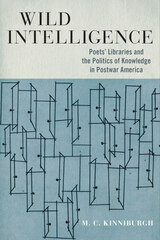Paper: 978-1-62616-186-3
The latest round of leadership changes at the IMF and the World Bank has generated increasingly intense criticism of the tacit Western hold on governance of these institutions. While this dynamic is indicative of global power adjustments, it also signals a paradigm shift in thought about issues and methodology of development and growth. John Maynard Keynes famously noted the influence economists exert on leaders as: “Practical men, who believe themselves to be quite exempt from any intellectual influence, are usually the slaves of some defunct economist.” Perhaps it is time, especially in the field of development, to question the traditional monopoly of economists, and to effectively include scientists, anthropologists, and others to provide collaborative thought leadership.
The Forum of this issue brings together leading policy makers, business professionals, and academics to evaluate the changing landscape of international development. New forms of assistance and greater connectivity among development stakeholders have reduced relevance of the traditional role of multilateral or bilateral agents of foreign aid and pillar organizations of the Washington Consensus. These bodies must adapt to an ever-changing world while being constrained by laws and bureaucratic processes. There is also a need to balance the perennial temptation of using official development assistance to promote national agenda with the interests of recipients. To deal with these and similar challenges effectively, the future lies in building networks of hybrid partnerships between governments, individuals, and other stakeholders in development.
The Georgetown Journal of International Affairs is the official publication of the Edmund A. Walsh School of Foreign Service at Georgetown University. Each issue of the journal provides readers with a diverse array of timely, peer-reviewed content penned by top policymakers, business leaders, and academic luminaries. The Journal takes a holistic approach to international affairs and features a ‘Forum’ that offers focused analysis on a specific key issue with each new edition of the publication, as well as nine regular sections: Books, Business & Economics, Conflict & Security, Culture & Society, Law & Ethics, A Look Back, Politics & Diplomacy, Science & Technology, and View from the Ground.
See other books on: . 2 | Brannagan, Michael | Georgetown Journal | International Affairs | Volume 13
See other titles from Georgetown University Press












